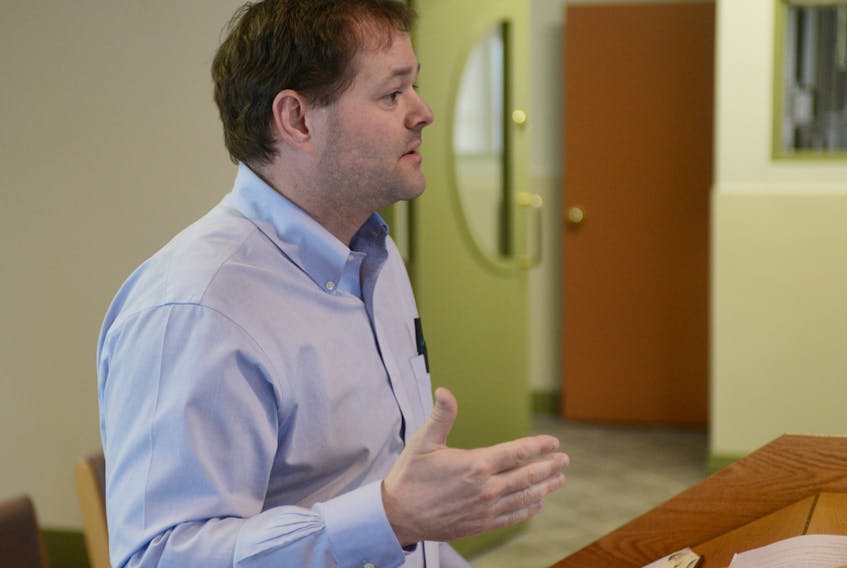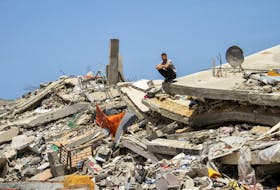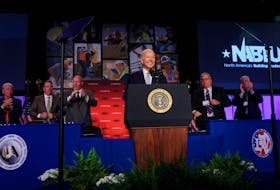With doctors working almost around the clock, some changes must be made at Kings County Memorial Hospital’s Emergency Room to keep services sustainable, a physician told Montague council last night.
Dr. Scott Campbell told council during Monday’s meeting the hospital is working on a policy change with Health P.E.I. that will soon see some patients at the ER who are not in need of urgent care being asked to come back the next day or to make an appointment with their family doctor.
Campbell said physicians have historically stayed to see everyone who arrives at the ER between 8 a.m. and 10 p.m.
The average time physicians leave is now between 1 a.m. to 2 a.m., although the past six weeks have seen some stay until 6 a.m.
“(They’re) almost working 24 hours straight looking after people,” said Campbell, noting those extra hours also require nurses and diagnostic imaging staff to stay. “We don’t want to close, but we cannot keep working in these same conditions.”
Campbell said those long hours can compromise patient safety or, if staff is too exhausted to work the next day, it results in other services being unavailable.
“It simply just translates down the road,” he said.
Campbell said the past several months have also seen two disturbing trends: increased difficulty in managing the growing demand in the ER as well as more aggression towards staff due to those wait times.
However, Campbell said some ER demand is from patients not in need of urgent care.
“The problem is, does the prescription refill or a sore toe justify the closure of an office the next day for people who’ve been waiting maybe two or three weeks for a very serious issue?” said Campbell.
He said the new policy proposes that daily at around 8:30 p.m. the charge nurse and physician will determine how many more patients can be seen.
He emphasized those in need of urgent care, even arriving after 8:30 p.m., will still be seen. Those with a serious issue that is not life-threatening will be determined on a case-by-case basis.
All others will be reviewed and, if not in need of urgent care, will be asked to come back the next day, make an appointment with a family doctor or go to the QEH or Prince County Hospital ER.
Campbell noted that decision could be made at any point throughout the day, as long as there are enough patients needing care that it will already require the physician to stay an hour past the end of the shift.
Campbell said ER physicians will also soon start splitting shifts, with the hospital having requested an increase in two physician hours per day to allow for a transition of care.
He said both of these proposals may help avoid future closures, adding that the hospital has a hard time finding other physicians to fill in shifts.
“Because nobody wants to work the hours we work… this is really driving the closures we’ve had,” said Campbell. “We need to make it more attractive or at least inviting for those people to even show an interest.”
Campbell also suggested having a town hall meeting to inform residents of the changes.
“(The) community needs to be aware of this, this is not a hidden agenda, this is something we all need to understand in order to actually have a continuing, viable health-care system,” he said. “(It’s) trying find that balance of how do we sustain all aspects of medicine in our community and not sacrifice primary care for our emergency room work, palliative or prenatal care.”









